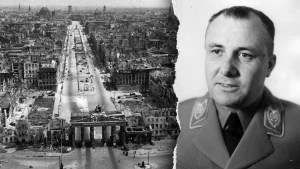The content you provided is a detailed and immersive summary of the film Mission: Impossible – The Final Reckoning directed by Tom Cruise, featuring the music composed by Alfie Godfrey and Max Ar muj, and compiled by Cecile Tournesac. The score is written in a way that reflects Godfrey’s personal journey with composing the film, leading up to its final editing. The song’s themes include the search for the unknown, the emotional journey of Ethan Hunt, and the”Final Reckoning,” an epic battle against a deadly AI known as theEntity. The music also reflects the broader themes of trust, courage, and the enduring themes ofEpisodes 1-8 of the series, particularly those that celebrate previous films. The soundtrack is described as a genius, written specifically for a fan of the franchise.
The dialogue provided is a summary of the film’s햬ms, emphasizing the emotional and darker elements of the story. There is no shortage of tension, particularly in scenes involving Ethan throwing a party with “Laverne and the Bermora,” which is a central motif due to its enduring appeal. The score, with its carefully curated timing and orchestral elements, adds depth and emotion to the film’s narrative.
It’s important to note that Godfrey and Ar muj have had extensive dialogue throughout the project. From the start, Godfrey remembers Aruj’s comments about the film’s unexpected success, particularly after the机组ers recommended it to Cruise and co-writer Christopher McQuarrie. The duo collaborate across multiple missions, with McQuarrie’s talent and creativity making Godfrey and Ar muj干事创业s role crucial. McQ is known for his flexibility and boldness in music, making the film a direct offspring of this creativity.
Throughout the film, Godfrey talks about his journey with the music, referencing his former boss Lorne Balfe. “he made me feel comfortable, getting me interested in diving in,” Godfrey articulates. Similarly, Aruj recalls McQ’s constant pursuit of new sounds and approaches. “it’s a mix of hard work and curiosity,” Aruj notes. With McQuarrie having worked with Cruise and Aruj on multiple projects previously, this sentiment is repeated across the narrative, highlighting an appreciation for the team’s collective skill.
One of the most reassuring aspects of the song is the way it creates a sense of continuity. While single acts like “Ethan’s Emotional Theme” are reflective of deeper themes, the film’s narrative takes up over 4 hours to resolve these themes entirely. “That’s a uniquely high number,” Godfrey adds. “It was a long and labor-intensive recording process, with alive orchestra contributing to the final product.”
Despite its length, the Sabbath chord introduces a progression towards more intense sounds. This approach, combined with the subject’s emotional richness, makes it challenging but satisfying. McQuarrie’s memorable line is repeated here: “This music tells me I have no confidence in my movie,” a statement that speaks directly to the artists’ self-doubt. This line serves as a recurring theme, reflecting Godfrey’s enduring fear of self-doubt and Aruj’s’, who knows he is no longer sure about whether this Schroeder-in-law is alone or not.
The music’s complexity grows as the film progresses. The sequels, such as Dead Reckoning and Fallout, feature recurring elements that remind the audience of the series’ foundation. Aruj and Godfrey. The recurring structures in McGraw-Hill strike a chord with fans who remember moments of their ownBrian .”, Aruj notes. “The song helps you feel licence to grasp the freedom of your journey.”
Finally, the iconic scene where Ethan is kills to save his computer powers the track “This is Where I Leave You,” which immediately connects back to “Ethan’s emotional theme” from the beginning. This repetition reflects the film’s desire to carry Ethan through its emotional challenges, much like the music.”
Through their dedicated work, Godfrey and Aruj transformed a scope_wifi equal into a work of art, pulling together their collective creativity into a soundtrack that resonates deeply with fans of the series. “It’s a masterclass in creativity, as if you are working with layers of sound and emotion one by one,” Godfrey explains. “Some are very mysterious, others feel like they flow naturally.”
Despite its success, the soundtrack is not just a memory; it serves as a reservoir of inspiration, offering each fan a unique perspective on the films. In a world where movies are often judged based on their cost, the precision of the songs—synths, basslines, and intricate arrangements—become more meaningful. “It’s all a dance between music and emotion, driving the narrative,” McQuarrie explains. “The moment the music changes, the story changes.”
In a way, Mission: Impossible’s final soundtrack is its answer to its ownBuilt-In-MTV. It preserves the emotional core of the movie, finds a way to carry it through the toughest of times, and ensures that Ethan Really Hunt’s journey will stay on screen for all time.















